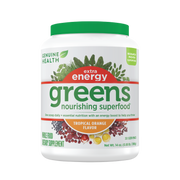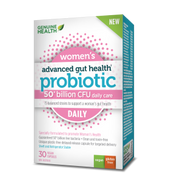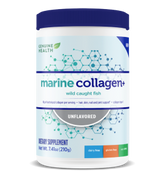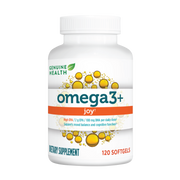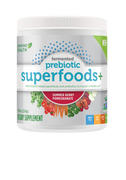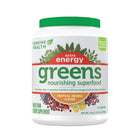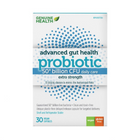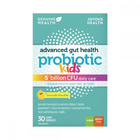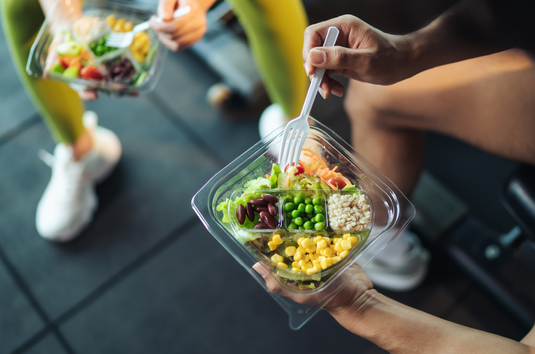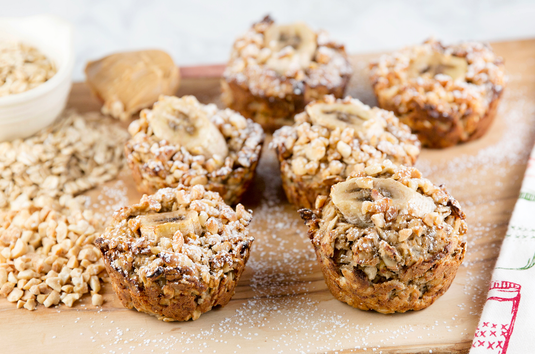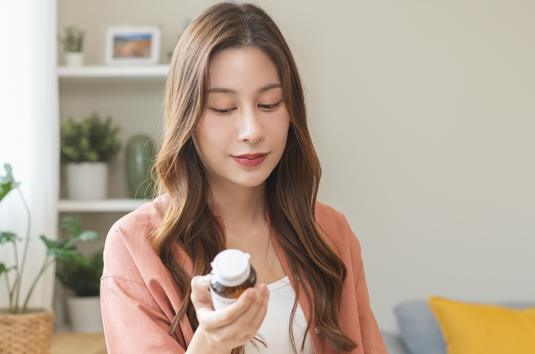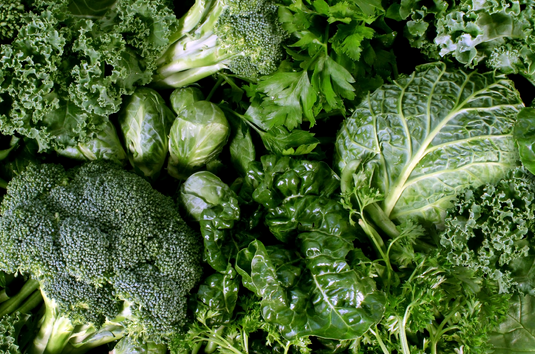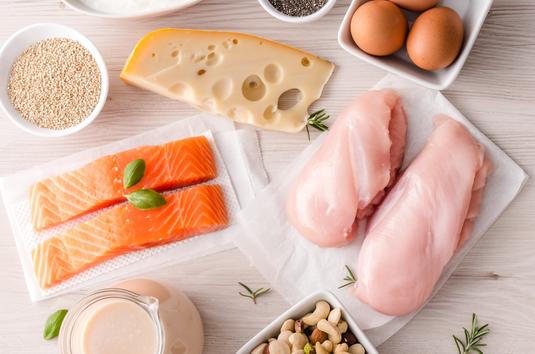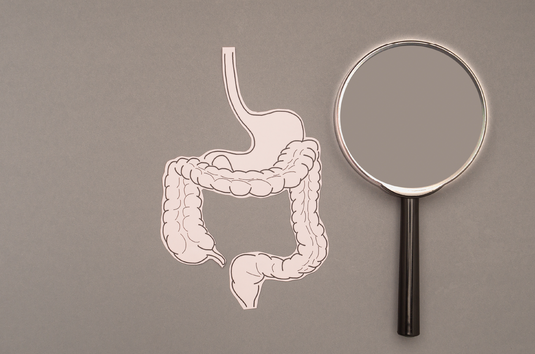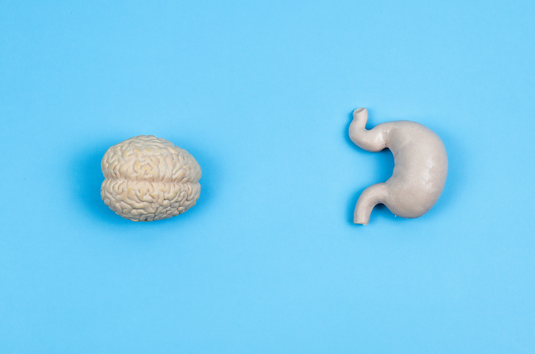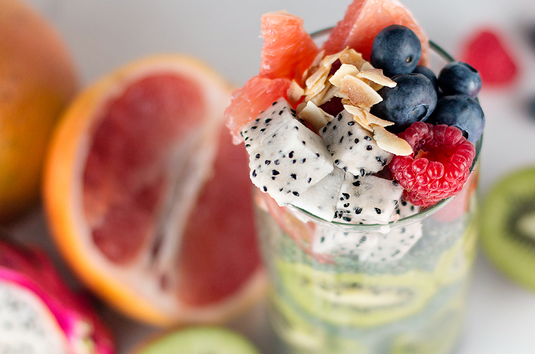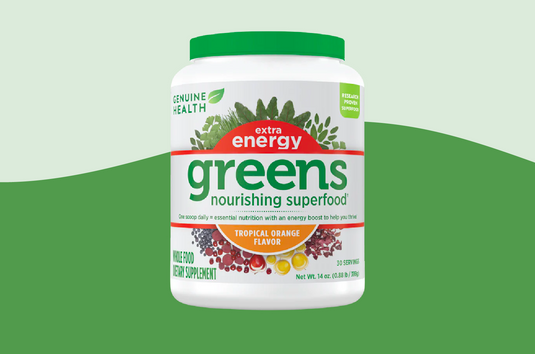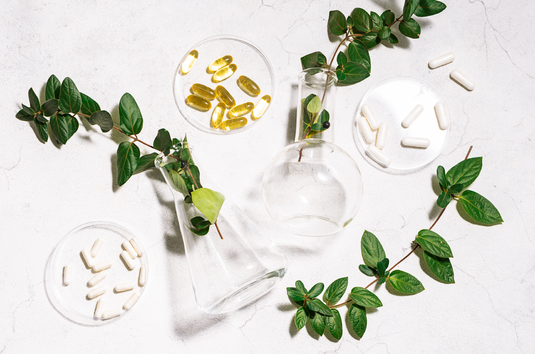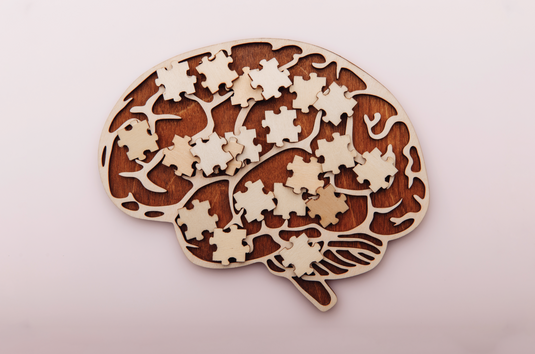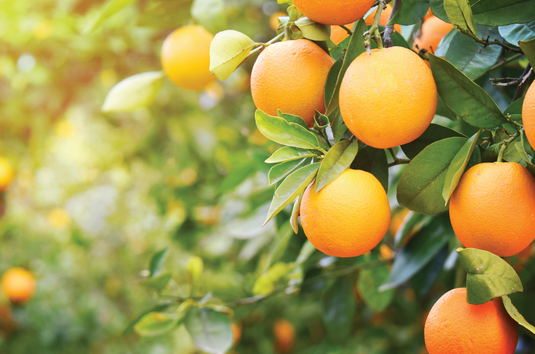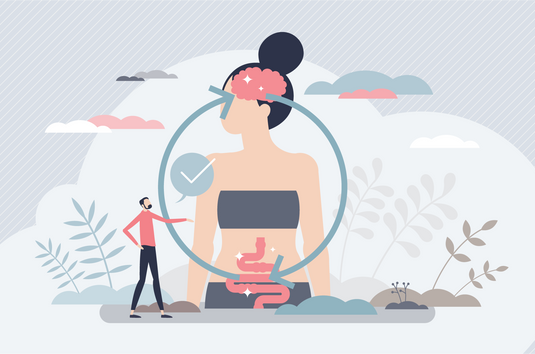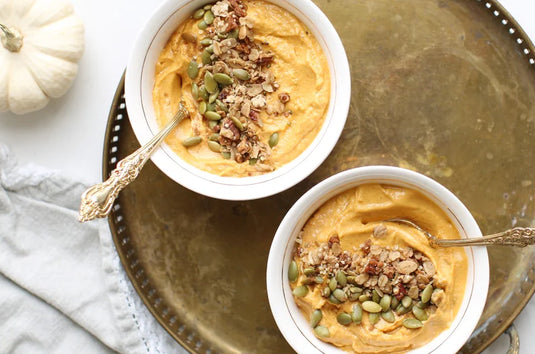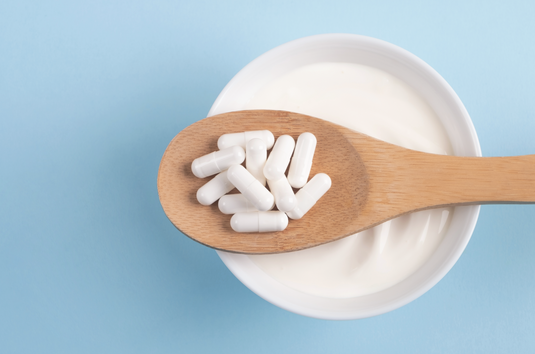A Naturopath’s 4 Tips to Thrive This Winter

Contemplating the long winter months often conjures up images of snuggling by the fire, hitting the slopes, sipping hot drinks, playfully throwing snow at each other – or wait, is that just the curated reality of Instagram?
Whatever the case, winter can be grueling for a lot of us, and not just in the “it’s really freaking cold out” sense. When we pay close attention to our physical and emotional needs, we often tap into really important messages from our bodies. These messages range in content from I need more vegetables to I need less wine to MY personal favorite Why haven’t you exercised me in two months?
And while it’s always (yes, I said it… ALWAYS) a good idea to re-evaluate your current dietary & exercise routines, food, supplementation and movement are not always going to be sufficient in treating more underlying and insidious concerns like anxiety and depression. This is why seeking support from your health care practitioner is incredibly important, even when implementing the following.
My top recommendations for thriving in winter:
Phytonutrients have been shown to have similar action on the body and in the brain as Monoamine Oxidase Inhibitors or MAOIs. While this particular class of antidepressants has lost its popularity due to its various interactions with other drugs and foods, the action of this class of drugs holds water- MAOIs elevate the levels of serotonin and dopamine in the brain by inhibiting an enzyme called monoamine oxidase, an enzyme that initiates the breakdown of these happy & pleasure-inducing neurotransmitters. So by eating phytonutrients (numerous studies have pointed to blueberries in their results), you are naturally boosting the inhibition of this enzyme, thus increasing levels of happy neurotransmitters.
Phytonutrients also play a huge role in supporting a healthy inflammatory response†.
Now, you may be thinking, how do I get enough fruits and veggies in my day (and do I need to quit my day job to do so)? This is where supplements come into play. Be mindful of your diet and make the effort to include more plant-based meals. But in order to provide superior support, introduce a superfood supplement into your routine. Made with 22 fermented polyphenol-rich superfoods and prebiotics, fermented organic gut superfoods+ does all of the above and more. All you need to do is add a scoop of fermented organic gut superfoods+ to your morning (or evening) drink.
Fish oil has the happy ability to cross the blood-brain barrier of the brain, allowing it to work its anti-inflammatory magic on our cranial tissue, aiding the swift transportation of impulses between neurons and when high in EPA, can also help to regulate mood. Omega-3, when derived from fish and when taken at the right dose, can be of huge support to both the emotional & physical body.
Even if you eat fish every day, it’s important to supplement with a high quality omega-3 fish oil—one that is made from clean, wild and sustainably caught fish, and contains a high ratio of EPA to DHA. One dose of omega3+ JOY contains 1000mg EPA concentrate, the dosage clinically proven to help improve mood and mental outlook, including the seasonal blues†, as well as support a healthy inflammatory response†.
If there is one supplement that I talk about and educate on the most in my clinic, it’s probiotics. I cannot stress enough the importance of taking a good quality probiotic every day. Probiotics are made up of good, healthy bacteria that help to restore balance in the digestive tract. More and more research is pointing to the huge role that the microbiome (the population of bacteria in our gut) plays in not only immune & digestive function but also in the cognitive connection—because our serotonin or “happy hormone” levels are most concentrated in the gut, the role that healthy bacteria play in the production and maintenance of this ever-important neurotransmitter is not just minor. It’s critical.
Look for a probiotic with multiple strains, as your gut has many species of living in it, and multi-strain probiotics have been shown to be more effective than their single or triple-strain counterparts. Also, look for a probiotic that contains a specialized capsule that delivers those healthy bacteria to where they’re needed—your gut! advanced gut health probiotic women’s mood is the probiotic that I recommend to my patients, as it is crafted with 15 carefully chosen strains to strengthen a woman’s gut flora and support emotional and immune system health† plus Extramel™ melon juice concentrate to help reduce stress and fatigue†.
If you’re a patient of mine, you know these practices are my go-to antidotes for supporting a healthy mood. You’re either working from a place of love or a place of fear and getting really present to what you’re grateful for is a quick way to return to love. For example, one study aimed to explore the benefits of gratitude using functional magnetic resonance imaging and heart rate data—and found that the average heart rate was “significantly lower” with gratitudei.
Sources:
[1] Kyeong, Sunghyon et al. Effects of gratitude meditation on neural network functional connectivity and brain-heart coupling. Sci Rep. 2017; 7: 5058.
Whatever the case, winter can be grueling for a lot of us, and not just in the “it’s really freaking cold out” sense. When we pay close attention to our physical and emotional needs, we often tap into really important messages from our bodies. These messages range in content from I need more vegetables to I need less wine to MY personal favorite Why haven’t you exercised me in two months?
And while it’s always (yes, I said it… ALWAYS) a good idea to re-evaluate your current dietary & exercise routines, food, supplementation and movement are not always going to be sufficient in treating more underlying and insidious concerns like anxiety and depression. This is why seeking support from your health care practitioner is incredibly important, even when implementing the following.
My top recommendations for thriving in winter:
1. Phytonutrients
Phytonutrients have been shown to have similar action on the body and in the brain as Monoamine Oxidase Inhibitors or MAOIs. While this particular class of antidepressants has lost its popularity due to its various interactions with other drugs and foods, the action of this class of drugs holds water- MAOIs elevate the levels of serotonin and dopamine in the brain by inhibiting an enzyme called monoamine oxidase, an enzyme that initiates the breakdown of these happy & pleasure-inducing neurotransmitters. So by eating phytonutrients (numerous studies have pointed to blueberries in their results), you are naturally boosting the inhibition of this enzyme, thus increasing levels of happy neurotransmitters.
Phytonutrients also play a huge role in supporting a healthy inflammatory response†.
Now, you may be thinking, how do I get enough fruits and veggies in my day (and do I need to quit my day job to do so)? This is where supplements come into play. Be mindful of your diet and make the effort to include more plant-based meals. But in order to provide superior support, introduce a superfood supplement into your routine. Made with 22 fermented polyphenol-rich superfoods and prebiotics, fermented organic gut superfoods+ does all of the above and more. All you need to do is add a scoop of fermented organic gut superfoods+ to your morning (or evening) drink.
2. Omega-3 fish oil:
Fish oil has the happy ability to cross the blood-brain barrier of the brain, allowing it to work its anti-inflammatory magic on our cranial tissue, aiding the swift transportation of impulses between neurons and when high in EPA, can also help to regulate mood. Omega-3, when derived from fish and when taken at the right dose, can be of huge support to both the emotional & physical body.
Even if you eat fish every day, it’s important to supplement with a high quality omega-3 fish oil—one that is made from clean, wild and sustainably caught fish, and contains a high ratio of EPA to DHA. One dose of omega3+ JOY contains 1000mg EPA concentrate, the dosage clinically proven to help improve mood and mental outlook, including the seasonal blues†, as well as support a healthy inflammatory response†.
3. Probiotics:
If there is one supplement that I talk about and educate on the most in my clinic, it’s probiotics. I cannot stress enough the importance of taking a good quality probiotic every day. Probiotics are made up of good, healthy bacteria that help to restore balance in the digestive tract. More and more research is pointing to the huge role that the microbiome (the population of bacteria in our gut) plays in not only immune & digestive function but also in the cognitive connection—because our serotonin or “happy hormone” levels are most concentrated in the gut, the role that healthy bacteria play in the production and maintenance of this ever-important neurotransmitter is not just minor. It’s critical.
Look for a probiotic with multiple strains, as your gut has many species of living in it, and multi-strain probiotics have been shown to be more effective than their single or triple-strain counterparts. Also, look for a probiotic that contains a specialized capsule that delivers those healthy bacteria to where they’re needed—your gut! advanced gut health probiotic women’s mood is the probiotic that I recommend to my patients, as it is crafted with 15 carefully chosen strains to strengthen a woman’s gut flora and support emotional and immune system health† plus Extramel™ melon juice concentrate to help reduce stress and fatigue†.
4. Gratitude & Meditation:
If you’re a patient of mine, you know these practices are my go-to antidotes for supporting a healthy mood. You’re either working from a place of love or a place of fear and getting really present to what you’re grateful for is a quick way to return to love. For example, one study aimed to explore the benefits of gratitude using functional magnetic resonance imaging and heart rate data—and found that the average heart rate was “significantly lower” with gratitudei.
Sources:
[1] Kyeong, Sunghyon et al. Effects of gratitude meditation on neural network functional connectivity and brain-heart coupling. Sci Rep. 2017; 7: 5058.



